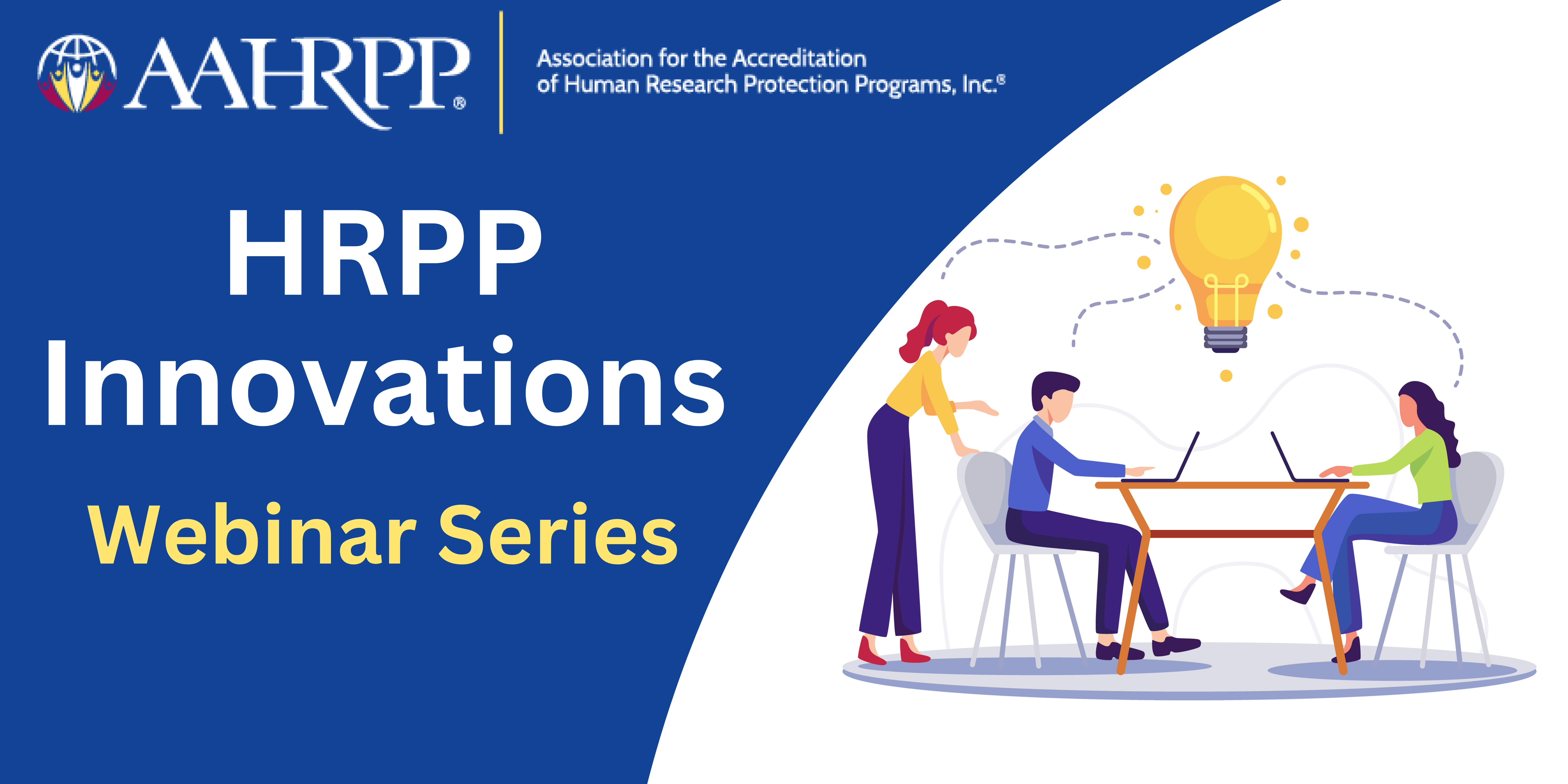Education, News & Events: Webinars
722f80bc-0bac-4c2d-b927-35ba43ced3f3.png?sfvrsn=24e02934_2)
Looking to demystify the accreditation journey? Ask AAHRPP is AAHRPP's exclusive live webinar series designed to give you access to AAHRPP experts and special guests. Bring your questions and get real-time answers from the people who know accreditation best.
Each session spotlights a critical step in the process—from conducting a self-assessment and preparing your application, to understanding how AAHRPP reviews materials and practices, responding to reports, and sustaining your accreditation long-term.
Whether you’re just starting out or maintaining your accreditation, Ask AAHRPP delivers practical guidance, proven strategies, resources, and tools that provide you the confidence you need to succeed.
Save the following dates for the 2026 "Ask AAHRPP" webinar series:
April 14, 2026, 3:00 pm ET: Evaluation of Written Materials: The Step 1 Application Review
June 9, 2026, 3:00 pm ET: Evauation of Practice: Preparing for the Site Visit
August 11, 2026, 3:00 pm ET: Responding to the Draft Site Visit Report
October 13, 2026, 3:00 pm ET: Understanding the Council on Accreditation Review
Tuesday, December 8, 2026, 3:00pm ET: Responding to Council Review and Maintaining Accreditation


